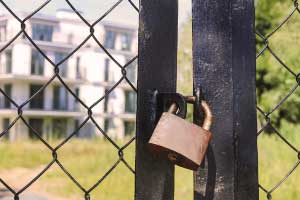[ecis2016.org] The Mumbai civic body has, so far, deregistered 310 ALMs in the city. We look at the reasons for the same and how it is likely to impact maintenance in localities
The Brihanmumbai Municipal Corporation (BMC) has, so far, deregistered 310 ALM (Advanced Locality Management) bodies in Mumbai, of which 211 are in the western suburbs, 53 in the city and 46 in the eastern suburbs. This has, naturally, disheartened several ALMs, who have been voluntarily helping the BMC in tackling civic issues.
You are reading: BMC-ALM blame-game over lack of support, puts civic issues on the back foot
According to the BMC, presently, only 119 ALMs are working satisfactorily. According to the civic body, the ALMs were deregistered, owing to ineffective waste management. “The ALMs were formed, for the purpose of involving communities in waste management. However, some ALMs have not played any effective role, nor have they done anything significant in the last one year. Hence, they were deregistered” explained Subhash Patil, ALM officer at the BMC.
ALM members, however, disagree with the BMC’s explanation. “Other than segregation, there is no other form of waste management that the ALMs are mandated to do. It is the corporation’s responsibility. Yet, many ALMs were segregating and also composting the waste. The BMC’s move to deregister the ALMs, will only discourage them,” avers Rajkumar Sharma, president, Advanced Locality Management and Networking Action Committee (ALMANAC), a federation of ALMs in the eastern suburbs.
Differences over waste segregation
As such, many ALMs (there were over 700 in the late 1990s) have de-listed on their own, or stopped being active, allegedly due to lack of support from the BMC. “The major reason behind ALMs’ declining interest, is their disenchantment with civic officials, who pay only lip service to the issues, with little improvement on the ground. They have largely failed, even in picking up the segregated waste,” laments Bharati Kakkad, a resident of Union Park, Khar and former secretary of Union Park Residents Association (UPRA).
Read also : Office rent remains stable in Delhi-NCR during Jan-June: JLL
Asha Panemanglor, a Powai resident, who was involved in the Hope for Powai ALM activities, concurs.
“While we segregated the garbage, the BMC workers used to mix it, as they had no facility to collect it separately. Many of our other civic issues also remained unattended, despite our relentless follow-up. Frustrated, I left the ALM,” she recounts.
[ecis2016.org] Builder or buyers: Who is responsible for facility management?
Sharma maintains that BMC labourers still mix the segregated waste and hence, many societies have stopped following this practice. “Our Diamond Garden ALM was segregating and composting waste, in bins built by us over the storm water drains. The BMC broke all the bins, while covering the drains and never reconstructed them,” he complains.
Patil, however, denies the charges. “Our wards have been deputing separate vehicles, for collecting the segregated waste. Further, Stree Mukti Sanghatana also helps in collecting dry waste. If there are any problems, the ALMs should interact with the concerned ward,” he advises.
No incentives for ALMs
Read also : Bengal environment minister assures alternate lake construction for flyover project
The question of whether ALM meetings should focus only on waste management, or also address other civic issues, continues to be a bone of contention too.
Although the BMC is now ready to re-register the ALMs that are willing to participate in waste segregation, the moot question is whether there will be any takers. Reintroduction of procedures that were being followed earlier, like regular meetings between ALMs and ward officers and periodical meetings at higher levels, better response to issues raised by ALMs, imposing fines on societies that do not segregate waste, giving incentives to those who do, etc., are some of the suggestions put forward by ALM representatives.
Viren Merchant, who started the first ALM in Joshi Lane, Ghatkopar, points out that “ALMs run on voluntary contribution and many do not contribute. Hence, I suggested that the BMC collect an additional tax from the residents, then double it with their own contribution, as an incentive and return it to the ALMs. However, the BMC officials said that they had no provision for providing pay-backs.”
Adds Kakkad: “Better response from the BMC, to issues raised by ALMs, proper implementation and positive results, would encourage the existing ALMs to continue and others to join in.”
Patil, however, categorically clarifies that no funding or other forms of incentives, are on the cards and the BMC can only provide technical support. “We can provide them the technical know-how, for waste management. ALMs can suggest some simpler and more transparent procedures, instead of just confronting and complaining. They should work as partners and not as mere pressure groups, which is the core element of the ALM concept,” he maintains. While the BMC and ALMs struggle to find a common ground, it may mean that in the meantime, civic issues continue to suffer, with residents, ultimately, having to pay the price.
Source: https://ecis2016.org/.
Copyright belongs to: ecis2016.org
Source: https://ecis2016.org
Category: Lifestyle





